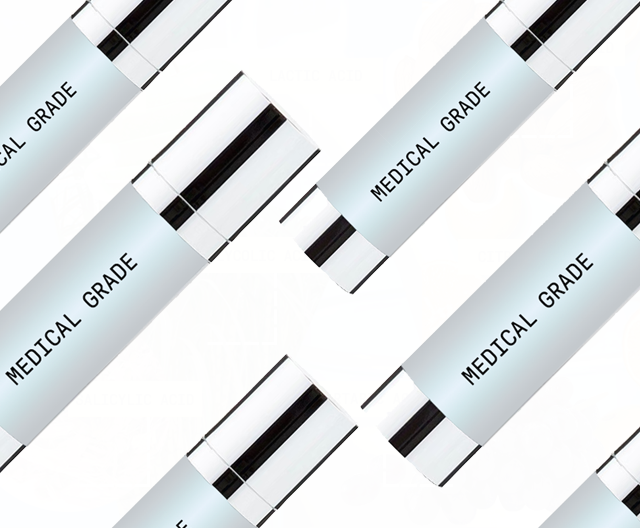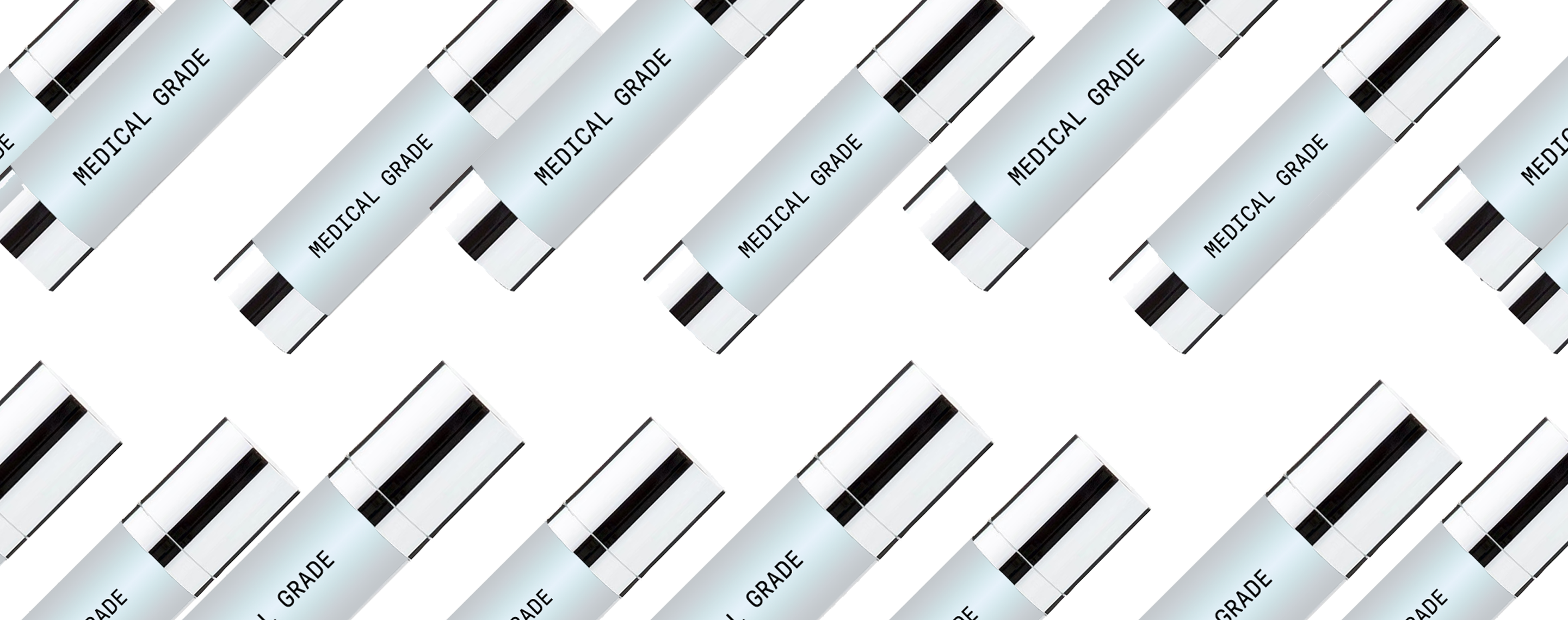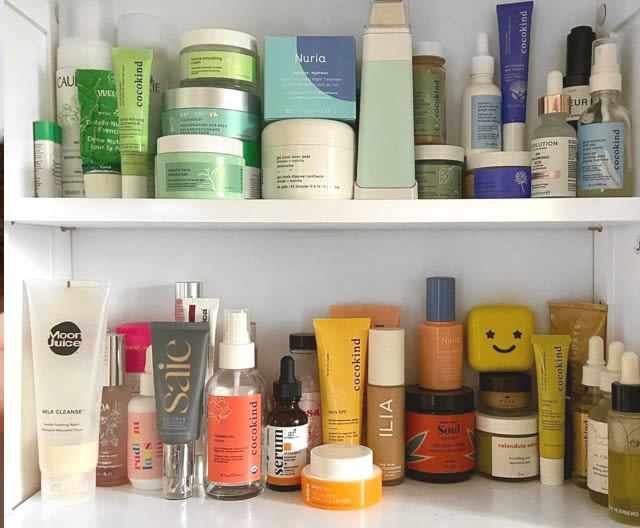Deep Dives
What is “Medical Grade” Skincare?


SHARE
Deep Dives
What is “Medical Grade” Skincare?
Medically reviewed by Aimee Paik, MD
Written by Annie Lam
Last updated 4/1/2022
There are a lot of marketing buzzwords in skincare, so it’s hard to know which ones are actually valid. One of the most up-and-coming terms is “medical-grade”, which is often used synonymously with other terms like “clinical”, “cosmeceutical”, or “professional-grade” skincare. It’s often touted as “higher strength” and more clinically vetted than other products on the market, but what does it really mean? And is that notion even true? We’ll be talking about the claims behind “medical-grade” skincare, and if it’s really better than other products on the market.
What is “Medical Grade” Skincare?
“Medical-grade” skincare is often advertised as more potent with a higher concentration of effective ingredients, which will provide you with more noticeable results. Many “medical-grade” skincare brands claim that their products are more clinically tested, higher strength, and can make medical claims due to their potency.
These brands tend to be sold in medical spas, dermatologist offices, and skin clinics (and are sometimes exclusively sold by licensed professionals). Some brands that are labeled as medical grade or professional grade are Skinceuticals, Obagi, iS Clinical, and PCA Skin.
Are the Claims Really True?
The short answer is no, they’re not. “Medical grade” is not a regulated term in the U.S., meaning there are no rules that a brand must follow in order to label their products as “medical” or “professional-grade”. Let’s debunk some of the marketing claims:
“Medical-grade” skincare is more clinically tested. False. Because there is no regulation, there is no guarantee that a medical grade skincare brand will perform more clinical testing than other brands on the market. Some “medical-grade” brands do conduct clinical trials, but a lot of over-the-counter brands do as well.
“Medical-grade” skincare can only be sold by skincare professionals because it’s “more potent” and “higher strength”. False. “Medical-grade” skincare does not necessarily have a higher concentration of ingredients compared to other products. You can get products with high percentages of ingredients from lots of brands on the market.
“Medical-grade” skincare can penetrate into the deeper layers of the skin, so they can make medical claims. False. How deep a product/ingredient penetrates depends on a variety of different factors. There are no definitive differences in how “medical-grade” skincare is formulated compared to other products. Additionally, our medical director and board-certified dermatologist Dr. Aimee Paik says, “‘Medical-grade’ skincare cannot make any claims about a medical skin benefit or they would be regulated as a drug by the FDA”.
Is “Medical Grade” Skincare Better than Other Products on the Market?
As mentioned earlier, “medical-grade” is not a term that is regulated by the FDA. Because of this, “medical-grade” skincare and other products on the market are both considered cosmetics, so there is no difference in regulation, potency, or clinical trials.
Dr. Paik says: “‘medical-grade’ skincare usually contains interesting ingredients with theoretical benefits but minimal proven clinical effect. I personally don’t believe ‘medical-grade’ skin care products provide much added benefit over other OTC products. One may have better packaging or marketing or a better cosmetic “feel” on the skin but it will not necessarily work better.”
It’s best to look at individual skincare products and brands to determine their efficacy rather than relying on marketing claims. Dr. Paik recommends sticking with basic products with simple ingredients that will complement your prescription treatments. There are many amazing over-the-counter skincare products that our derms recommend.
Furthermore, the FDA labels drugs/medications as “articles intended for use in the diagnosis, cure, mitigation, treatment, or prevention of disease”. So the only truly “medical grade” products are prescription strength treatments from a dermatologist or over-the-counter drugs/medications. These are backed by clinical research, regulated by the FDA, and customizable in strength based on your skin and concerns. You will also receive detailed instructions on how to incorporate your treatment into your routine.
So there you have it! While medical grade skincare may sound enticing, it’s just a marketing term that has no rules or regulations behind it. So next time you get drawn in by a skincare brand marketing themselves as medical or professional-grade, you’ll know to look a little deeper than just the marketing claims. Here’s to being a more informed consumer!
Like what you just read? Sign up for our email list to get the scoop on skincare science delivered straight to your inbox.

Education
What is milia?
What is milia? Today, we’re jumping into one type of bump that you may have heard about most commonly in infants — milia.
Read More
Education
Best moisturizer for acne-prone skin
If you have combination acne-prone skin, figuring out which moisturizer is best for your skin might be tough. In this guide, we break down the best moisturizer for combination, acne-prone skin.
Read More
Education
How to build a face care routine
As you get into skincare, it might seem overwhelming, especially trying to figure out the order you're supposed to apply products in. Below, we detail how to build a face care routine for your skin!
Read More